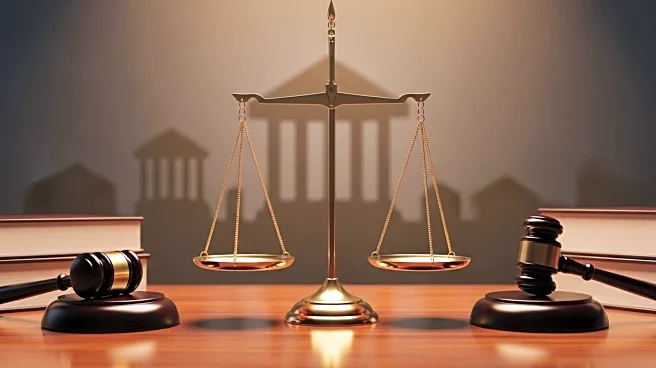What's Happening?
Retired Justice Anthony Kennedy, who authored the Supreme Court's landmark 2015 decision legalizing same-sex marriage, expressed confidence that the ruling will not be overturned. In an interview, Kennedy highlighted the significant number of children adopted by same-sex couples as a crucial factor in his decision-making process. The Obergefell v. Hodges ruling was based on the Fourteenth Amendment's guarantees of liberty and equal protection, with Kennedy emphasizing the importance of marriage recognition for the stability and predictability it offers to children of same-sex couples. Despite dissent from current justices, including Chief Justice John Roberts, Clarence Thomas, and Samuel Alito, Kennedy believes the reliance on the ruling by same-sex couples and their families will prevent its reversal.
Why It's Important?
The affirmation of the Obergefell decision by Justice Kennedy underscores the ongoing debate surrounding same-sex marriage rights in the U.S. The ruling has provided legal recognition and benefits to same-sex couples, impacting hundreds of thousands of families. A reversal could lead to significant legal and social upheaval, affecting the lives of adopted children and their parents. Kennedy's stance highlights the importance of judicial precedent and the reliance interests of families who have built their lives around the legal protections afforded by the decision. The potential for reconsideration by the Supreme Court remains a contentious issue, with implications for civil rights and equality.
What's Next?
While Justice Kennedy remains optimistic about the endurance of the Obergefell ruling, the Supreme Court's current composition and pending appeals, such as the case involving former Kentucky clerk Kim Davis, could challenge its stability. The court's approach to precedent and reliance interests will be critical in determining the future of same-sex marriage rights. Legal experts and civil rights advocates will closely monitor developments, as any shift could have profound effects on the legal landscape and societal norms regarding marriage equality.
Beyond the Headlines
Justice Kennedy's reflections on the tone of court opinions and the importance of moderate rhetoric highlight broader concerns about the judiciary's role in shaping public discourse. His emphasis on respect for judicial decisions and the avoidance of political dialogue underscores the ethical dimensions of judicial conduct. The potential impact of court decisions on societal values and the legal system's integrity remains a significant consideration in the ongoing debate over same-sex marriage rights.









